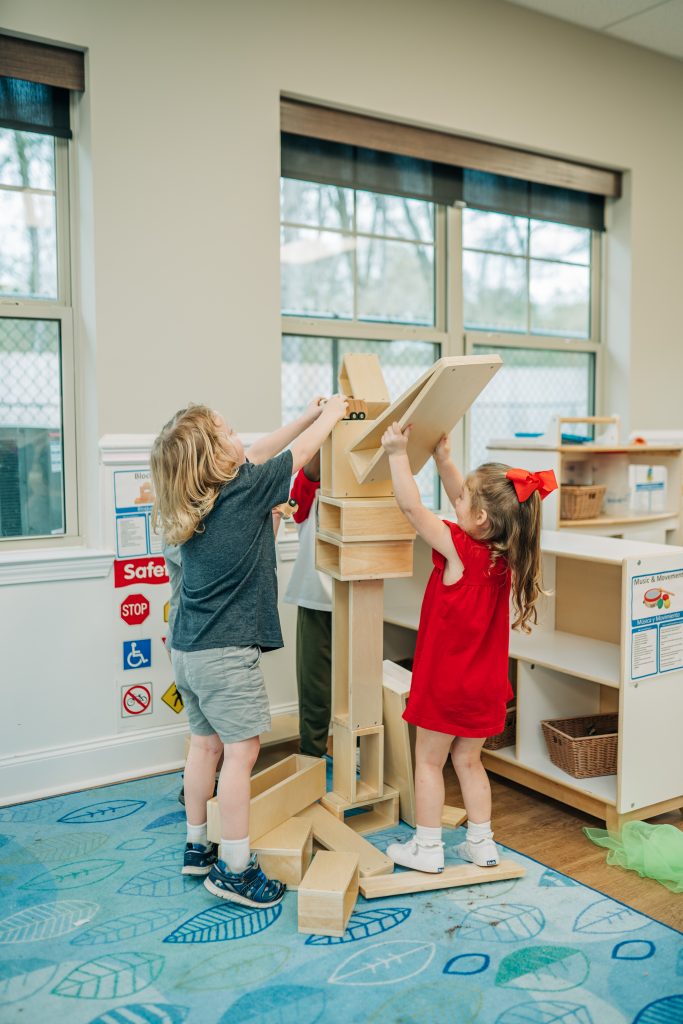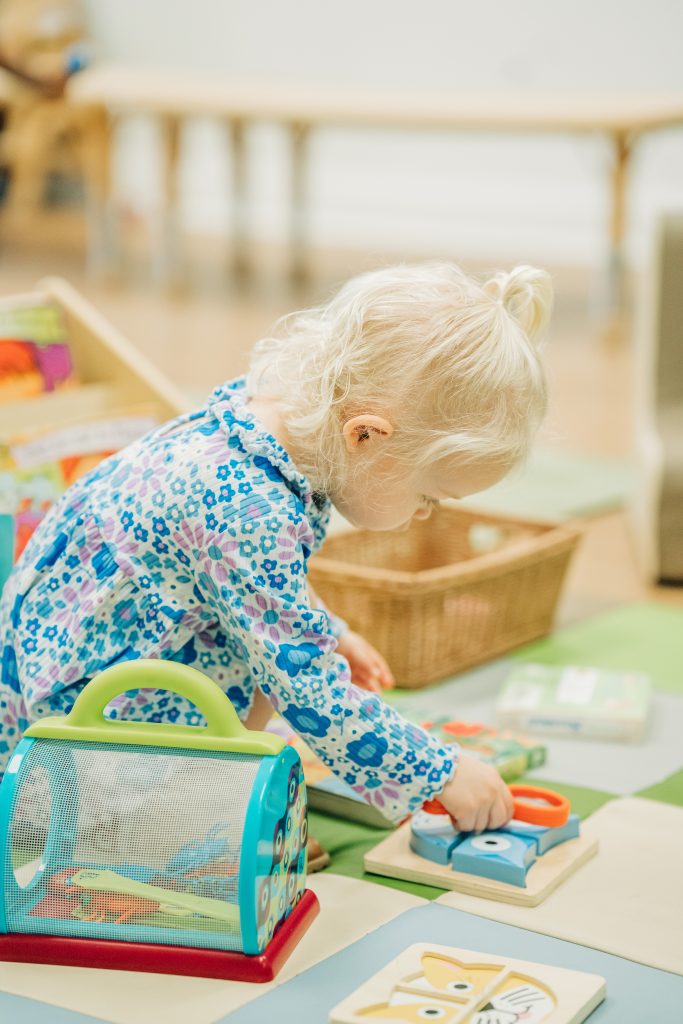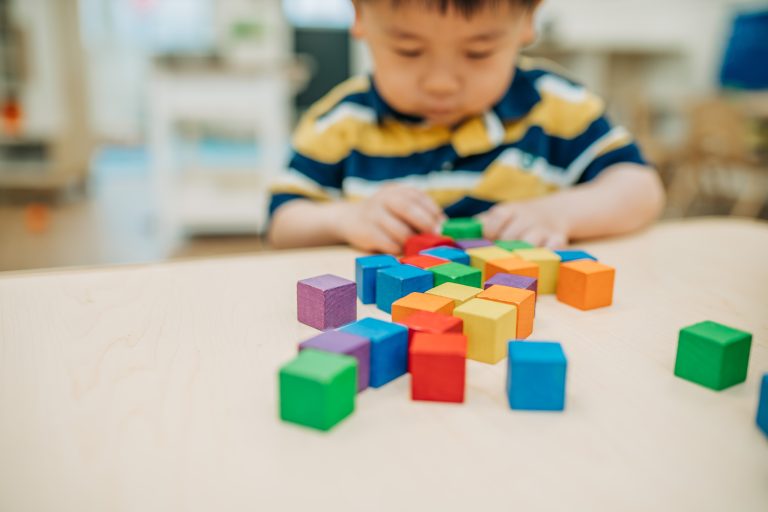
What is your child doing right now? Unless they are sleeping or eating, I bet they are playing or engaged in some sort of activity. Whether they are building with blocks, creating an art project, or pretending to put out a fire, your child is constantly learning. Giving children the opportunity to engage in purposeful play is the cornerstone of early education.
During the early years, children’s brains are rapidly growing and forming connections. Play is vital to shaping their cognitive, emotional, and physical abilities during this time. Many studies across the board prove this method to be true. For example, one study showed that children offered toys in infancy had higher IQ at age 3 and again at age 4.5. Similarly, studies prove that playing enhances children’s adjustment, language, and social and emotional stability by 33% to 67%.
Children learn through play in so many ways. Pretend play improves preschoolers’ speaking and understanding skills. While physical play activities benefit physical health, motor control, strength and endurance. Playing with others provides opportunities for children to learn social interaction. While playing together, children learn to cooperate, follow rules, develop self-control, and generally get along with other people.
Playing is an excellent way to bond with your child or a child you love. Happy, playful moments with children are some of the most precious gifts we can give our children. One study showed that when asking older children when they feel most loved, almost all of them answered “when my mom and dad play with me.” Playful learning is not limited to academic achievements. Social and emotional intelligence is equally as important in a child’s development.
Parents and caregivers are also given a unique opportunity to watch how their child plays. Have you ever sat back to watch your child engage in an activity? When they can’t seem to figure something out, it can be tough not to jump in and help them. Pausing before coming to their rescue gives your child the opportunity to problem solve. It’s amazing the things we can learn about our kids as we watch them grow, learn, and play.
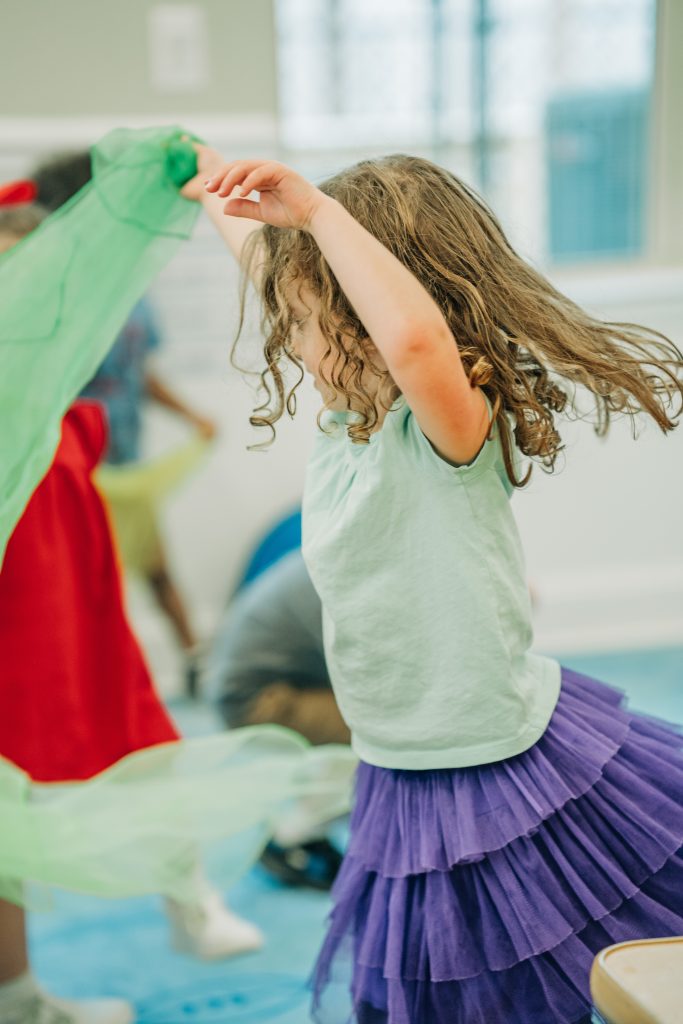
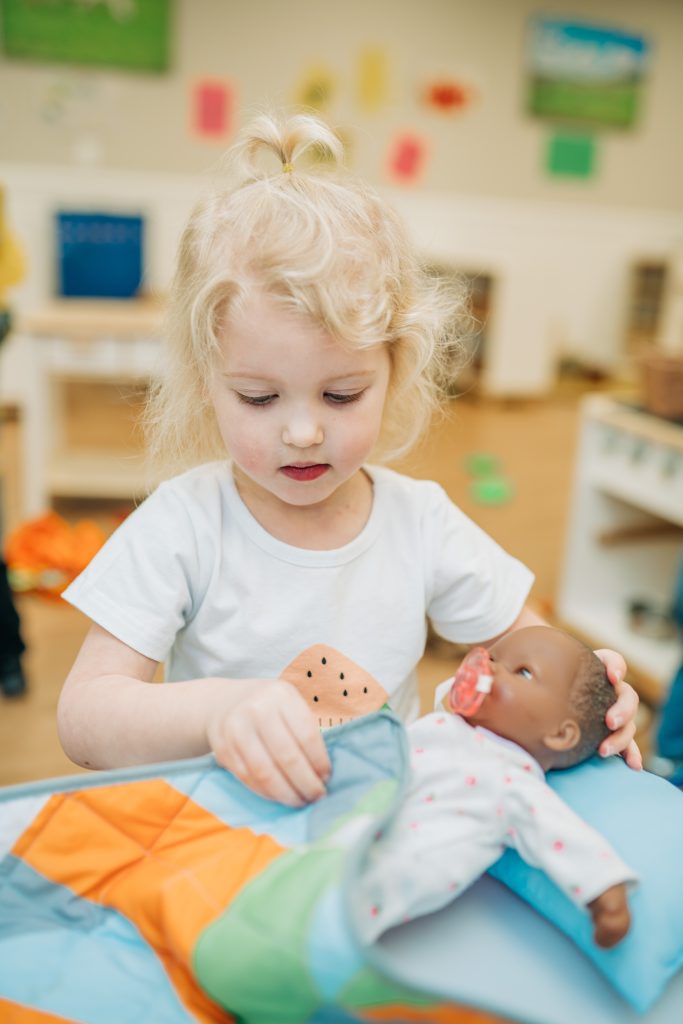
Here are some fun ways to help get you and your child engaged in playful learning:
- Storytelling with puppets:
- Create puppets from socks or paper bags
- Parents can help with the creative process for both the story line and puppet design
- Parents should ask open-ended questions like “Where do you think the princess lives?” or “What do you think the dog does next?”
- DIY building blocks:
- Create your own building blocks from old boxes. Children should be encouraged to color on the “blocks”.
- Encourage your child to tell you about what they are building with their blocks.
- Sensory bins:
- Create a sensory bin for your child with rice, sand, beans, etc..
- Add in some of your child’s favorite toys to hunt for
- Ask your child open ended questions about what they find in the sensory bins
- We love a themed sensory bin!
- Mini chefs:
- Have your child assist you in the kitchen
- Talk to your child about kitchen safety
- Have your child create their own recipe!
- Nature scavenger hunt
- Host a scavenger hunt in your backyard
- Parents can create cards with pictures of common items (leaf, bird, pinecone, flower, etc) for their child to match with real life items.
- Have your child describe what they see and find
